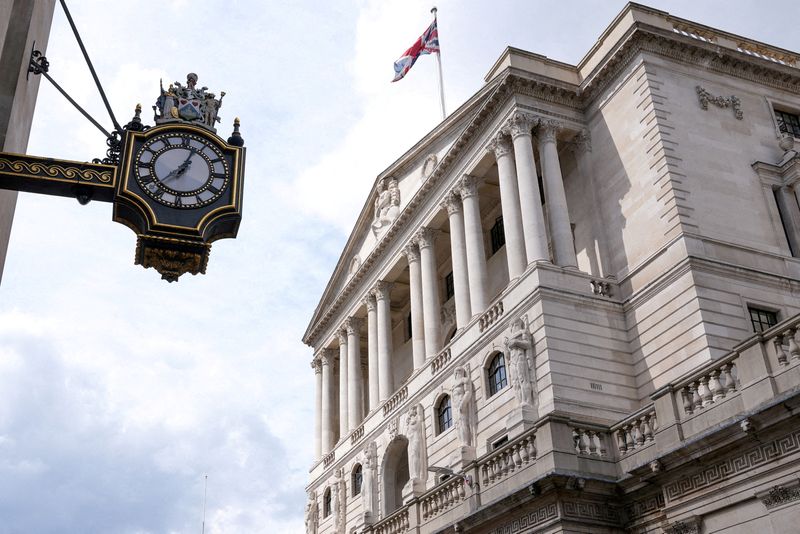Global rates, retail banking included in Bank of England stress test
2022.09.26 07:36
[ad_1]

© Reuters. FILE PHOTO: A general view of the Bank of England (BoE) building, the BoE confirmed to raise interest rates to 1.75%, in London, Britain, August 4, 2022. REUTERS/Maja Smiejkowska/File Photo
LONDON (Reuters) -Banks’ ability to cope with rising global interest rates and the resilience of their retail divisions to market shocks will be under scrutiny in this year’s “stress test”, the Bank of England said on Monday.
The test checks if banks hold enough capital to cope with theoretical shocks and aims to avoid a repeat of situations where taxpayers have to bail out lenders as they did in the global financial crisis more than a decade ago.
The test was adapted and delayed during the COVID-19 pandemic, but has now returned to its annual slot, with the results due mid-2023 to help the BoE determine capital levels.
“The stress scenario is more severe than the global financial crisis for both the UK and the world,” the BoE said in a statement.
With the BoE and other central banks raising interest rates to quell decades-high inflation amid the impact of Russia’s invasion of Ukraine, the test will for the first time check on the resilience of eight lenders to rising global and not just UK borrowing costs.
The eight banks are HSBC, Barclays (LON:), Standard, Lloyds (LON:), NatWest, Santander (BME:) UK, Virgin Money (LON:) and Nationwide Building Society.
The scenario – which is closer to a worst-case situation than how the BoE actually expects the economic outlook to develop – covers five years from end-June 2022, and includes the BoE’s Bank Rate rising to 6% early next year and a 5% fall in British economic output, as well as a 31% slump in house prices.
It will test “ring-fenced” retail arms of banks on a standalone basis for the first time, the BoE said.
There will be a separate stress test of misconduct costs.
“Banks are asked to provide stressed projections for misconduct costs that relate to known misconduct issues and have a low likelihood of being exceeded,” the BoE said.
The test has no pass or fail mark but a bespoke “hurdle” for each bank.
[ad_2]
Source link








